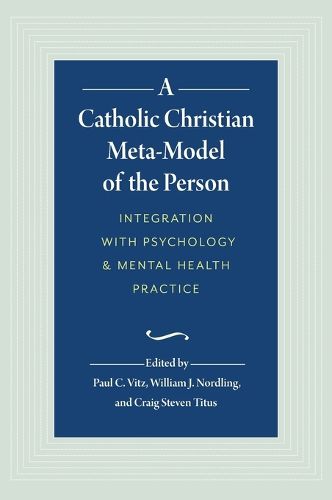Readings Newsletter
Become a Readings Member to make your shopping experience even easier.
Sign in or sign up for free!
You’re not far away from qualifying for FREE standard shipping within Australia
You’ve qualified for FREE standard shipping within Australia
The cart is loading…






A Catholic Christian Meta-Model of the Person integrates the insights of three wisdom traditions–the psychological sciences, philosophy, and theology–to provide a framework for understanding the person. The Meta-Model develops a more systematic, integrative, and non-reductionist vision of the person, marriage, family, and society than is found in any of these three disciplines alone. The Meta-Model is a unifying framework for the integration of already-existing personality theories and therapeutic models. In addition, it enhances assessment, diagnosis, case conceptualization, and treatment planning by addressing eleven essential dimensions of the person needed in mental health practice aimed at healing and flourishing. The book also explores how the Meta-Model framework can improve client care. Finally, it demonstrates how the Meta-Model assists mental health professionals to better understand how they can be faithful to their Christian identity as they serve all clients–Christians, persons from other faiths, and non-believers.
$9.00 standard shipping within Australia
FREE standard shipping within Australia for orders over $100.00
Express & International shipping calculated at checkout
A Catholic Christian Meta-Model of the Person integrates the insights of three wisdom traditions–the psychological sciences, philosophy, and theology–to provide a framework for understanding the person. The Meta-Model develops a more systematic, integrative, and non-reductionist vision of the person, marriage, family, and society than is found in any of these three disciplines alone. The Meta-Model is a unifying framework for the integration of already-existing personality theories and therapeutic models. In addition, it enhances assessment, diagnosis, case conceptualization, and treatment planning by addressing eleven essential dimensions of the person needed in mental health practice aimed at healing and flourishing. The book also explores how the Meta-Model framework can improve client care. Finally, it demonstrates how the Meta-Model assists mental health professionals to better understand how they can be faithful to their Christian identity as they serve all clients–Christians, persons from other faiths, and non-believers.